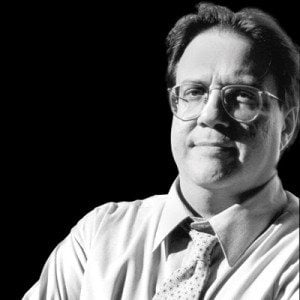Covered Up in Plain Sight

The fact that British Petroleum has been one of the most clandestine corporate citizens in recent history should be as brutally evident as the scummy oil now eating away at our nation’s hem. It has aggressively skirted media scrutiny for years, and its dismal lack of transparency is especially visible in Texas City. ¶ People in hard-working Texas City know all too well what the mainstream media is only just coming to understand. They know that dead men haunt the waterfront—men who lost their lives in earlier British Petroleum disasters. So it is beyond perverse that oil the company plans to “capture” from its gushing underwater well was destined for refineries in Texas City, where BP is still untangling the consequences of its bloody past.
Texas City’s history of calamity is long. In one of the most underreported environmental stories in American history, the town was laid to waste in 1947—more than 500 people killed, thousands injured, tons of deadly petrochemicals poured into the bay and the gumbo soil. BP wasn’t in Texas City in 1947. The so-called Texas City Disaster was the product of a neglectful federal government and the secretive petrochemical industries lining the coast. It dominated headlines for a few weeks and then all but disappeared.
That’s a pattern that BP is angling to replicate as it unleashes spin doctors, ignores inquiries, refuses to set up a press room and insists on locating its “response headquarters” in the less-than-convenient small Louisiana towns of Houma and Roberts.
“They are just not forthright about what’s going on,” says Dr. Robert Thomas, the Texas native who directs the Center for Environmental Communication at Loyola University in New Orleans. “BP is not talking about what they are spraying [as a dispersant] … and what the implications are. For days we couldn’t find out what they were spraying.”
A veteran biologist and zoologist, Thomas has been deeply absorbed in both the spill and BP’s attempts to control the story. Reporters, he says, are trying to squeeze straight answers from a behemoth accustomed not just to avoiding the media, but to controlling it.
“I’ve heard a lot of people saying, ‘I can’t get the information I need.’”
In Texas City, some folks aren’t surprised. They know BP as the clever giant that years ago began pouring millions of advertising dollars down the gullets of thirsty mainstream newspapers and magazines. With the calculated callousness of a corporate Nostradamus, BP executives no doubt saw a future when Americans would wise up to the fact that Bush-Cheney Inc. was nothing but an especially willing servant of the oil industry. So British Petroleum launched an aggressive “reinvention,” working the media hard, sending corporate soothsayers into editorial boardrooms and taking out handsome ads asserting a greener BP, “Beyond Petroleum,” safe, clean and verdantly inclined.
In 2005, the charade was revealed when 15 workers died in a tragic accident at the BP facility in Texas City. A shitstorm of investigations, fines and accusations finally unmasked the company. Media accounts, including those in The New York Times, expressed a naïve sense of surprise, as if the incident had been just a singular, asymptomatic stab. BP simply waited it out.
Now, as BP oil pumps into the Gulf, Thomas sees reporters screwing up the courage to face down the energy-industry gods. Some very brave reporting is coming from New Orleans’ Times-Picayune, the saintly publication that has been fighting with one hand tied behind its back since Katrina. And Thomas knows all about the entrenched cultural reluctance trickling down from the upper links of the media food chain in this part of America: “We tend to not be as confrontational with them [the energy companies]. There tends to be, from the top, a sense of ‘let’s don’t be too harsh.’”
It’s as if a billion-dollar global volcano has been smoking in plain sight for decades, and the media responds only when it erupts, when lives are lost, when entire ecosystems are in danger.
Otherwise, “They [BP] are absent, they are not at the forefront of the discussion,” Thomas says.
So the question is this: Shouldn’t the media always keep BP front and center, based solely on the company’s haunted history? And if we don’t, what will the ghosts of Texas City’s dead think of the 2015 report that BP will inevitably issue on the still unfolding tragedy in the Gulf?


